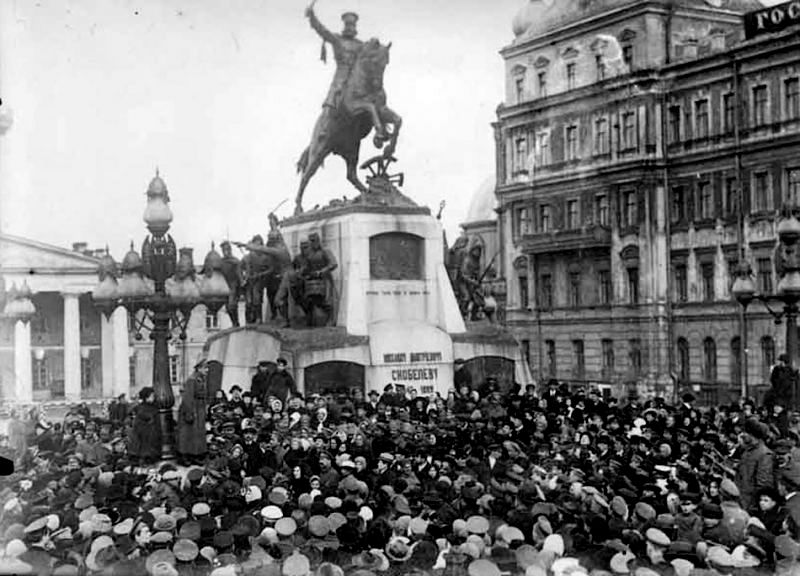Conference “Russian Revolution and its Spiritual Outcome: Man as a Collective Being and the Tragedy of the Person”

Whatever we regard as the cause of the 1917 revolution in Russia – be that the inevitable course of historic events, or the extreme provocation of the forces of evil both within and outside the country, or the peculiarities of Russian national character – one thing is certain: the whole of Russian history in the 20th century poses before us a very urgent issue of the human person who is capable of distinguishing clearly between good and evil, who is capable of spiritual independence and making responsible choices.
In 1917, Russia experienced a national catastrophe, which determined the tragic history of this country in the 20th century. One of the main outcomes of this catastrophe was an anthropological crisis of unprecedented scale. This was more than just the appearance of the ‘man of the masses’ on the historic scene – a phenomenon characteristic of this era in the whole of the European world, but Russia turning into a ‘world of Ham and the beast’, to quote Ivan Bunin. Berdyaev wrote of this fundamental change in the anthropological type as early as 1918: “Russian faces have changed too much over these past few months, indeed their expression has changed beyond recognition.” The consistent extermination of the most independent and self-sufficient part of the Russian population that was taking place over the whole of the 20th century, the long experiment of creating ‘a new, Soviet, type of man’ – all this could not but have a lasting and destructive effect on the country and its people.
Following up on the discussion begun at our previous conferences (“Russian Plane: Experience of Spiritual Resistance”, “People Acting in Freedom”, “A Circle of Friends As a Starting Point for Sobornost and Solidarity in Russia”), we want to talk this time about a new unity that people experience in times of crisis, a new kind of community and communion that is born in times like that, a direct opposite to the dark, ‘black sobornost’, the impersonal, reductionist ‘we’.
We propose the following topics for discussion:
- The outcome of the Russian revolution and how its 100th anniversary is seen and analysed
- Personal resistance and independence in the context of the revolution and the totalitarian regime
- Homo soveticus: background, pre-conditions and the results of the experiment
- Human society and communities, their history and the fate of the person in them
We invite philosophers, historian, sociologists, theologians, people working in art and culture – all those who have initiated discussion in various forms and have made an effort to understand and overcome the Russian catastrophe – to take part in this discussion and to try and think together what results we are facing now, where we can and want to go from here.
This Conference is a part of the non-government non-political initiative “National Repentance Initiative: Those Who Have Hope”.
We will cover your accommodation, board and transfer from Moscow to the Conference venue (the Transfiguration Centre for Culture and Education, Moscow Oblast, Istra Region) and back. Registration fee for the Conference is 2,000 RUB. The organisers propose to publish a selection of the Conference’s materials after the event.
To take part in the Conference, please apply using the link below before June 30, 2017, or fill in the application form and e-mail it to conference@psmb.ru stating your full name, place of residence, work or ministry, job/title, e-mail and phone number, as well as the topic of your presentation and a brief abstract (up to 200 characters).
Julia V. Balakshina, PhD, Chair,
Organising Committee,
Academic Secretary, St Philaret’s Christian Orthodox Institute,
Assistant Professor, SFI and Herzen State Pedagogical University of Russia
Organising Committee: conference@psmb.ru, +7 965 359 59 47 (Ekaterina Alexeeva)